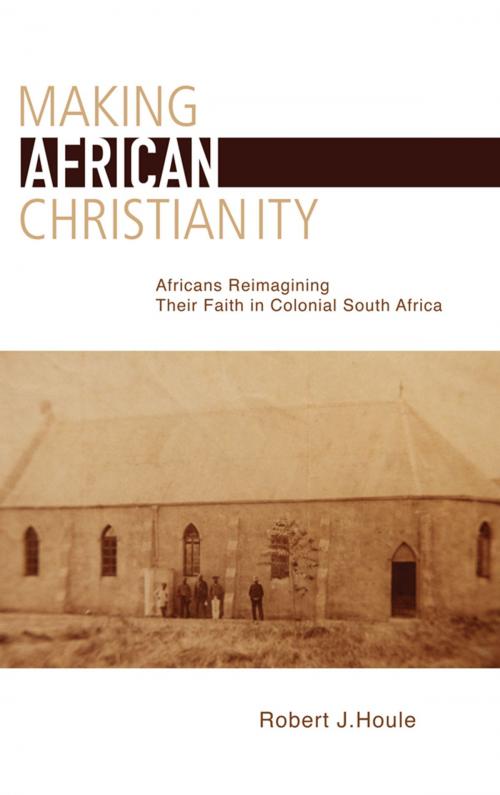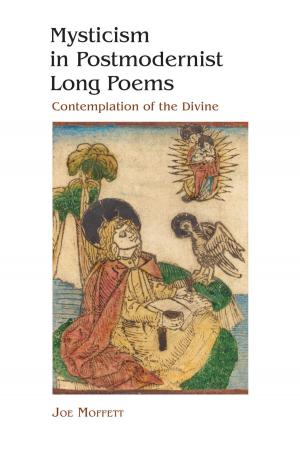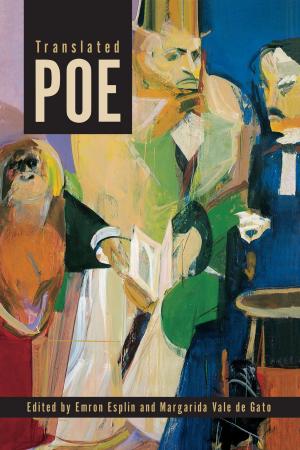Making African Christianity
Africans Reimagining Their Faith in Colonial South Africa
Nonfiction, Religion & Spirituality, Reference, Comparative Religion, Christianity, Church, Church History| Author: | Robert J. Houle | ISBN: | 9781611460827 |
| Publisher: | Lehigh University Press | Publication: | September 16, 2011 |
| Imprint: | Lehigh University Press | Language: | English |
| Author: | Robert J. Houle |
| ISBN: | 9781611460827 |
| Publisher: | Lehigh University Press |
| Publication: | September 16, 2011 |
| Imprint: | Lehigh University Press |
| Language: | English |
Making African Christianity argues that Africans successfully naturalized Christianity. It examines the long history of the faith among colonial Zulu Christians (known as amaKholwa) in what would become South Africa. As it has become clear that Africans are not discarding Christianity, a number of scholars have taken up the challenge of understanding why this is the case and how we got to this point. While functionalist arguments have their place, this book argues that we need to understand what is imbedded within the faith that many find so appealing. Houle argues that other aspects of the faith also needed to be 'translated,'particularly the theology of Christianity. For Zulu, the religion would never be a good fit unless converts could fill critical gaps such as how Christianity could account for the active and everyday presence of the amadhlozi ancestral spirits - a problem that was true for African converts across the continent in slightly different ways. Accomplishing this translation took years and a number of false-starts. Coming to this understanding is one of the particularly important contributions of this work, for like Benedict Anderson's 'Imagined Communities,' the early African Christian communities were entirely constructed ones. Here was a group struggling to understand what it meant to be both African and Christian. For much of their history this dual identity was difficult to reconcile, but through constant struggle to do so they transformed both themselves and their adopted faith. This manuscript goes far in filling a critical gap in how we have gotten to this point and will be welcomed by African historians, those interested in the history of colonialism, missions, southern African, and in particular Christianity.
Making African Christianity argues that Africans successfully naturalized Christianity. It examines the long history of the faith among colonial Zulu Christians (known as amaKholwa) in what would become South Africa. As it has become clear that Africans are not discarding Christianity, a number of scholars have taken up the challenge of understanding why this is the case and how we got to this point. While functionalist arguments have their place, this book argues that we need to understand what is imbedded within the faith that many find so appealing. Houle argues that other aspects of the faith also needed to be 'translated,'particularly the theology of Christianity. For Zulu, the religion would never be a good fit unless converts could fill critical gaps such as how Christianity could account for the active and everyday presence of the amadhlozi ancestral spirits - a problem that was true for African converts across the continent in slightly different ways. Accomplishing this translation took years and a number of false-starts. Coming to this understanding is one of the particularly important contributions of this work, for like Benedict Anderson's 'Imagined Communities,' the early African Christian communities were entirely constructed ones. Here was a group struggling to understand what it meant to be both African and Christian. For much of their history this dual identity was difficult to reconcile, but through constant struggle to do so they transformed both themselves and their adopted faith. This manuscript goes far in filling a critical gap in how we have gotten to this point and will be welcomed by African historians, those interested in the history of colonialism, missions, southern African, and in particular Christianity.















